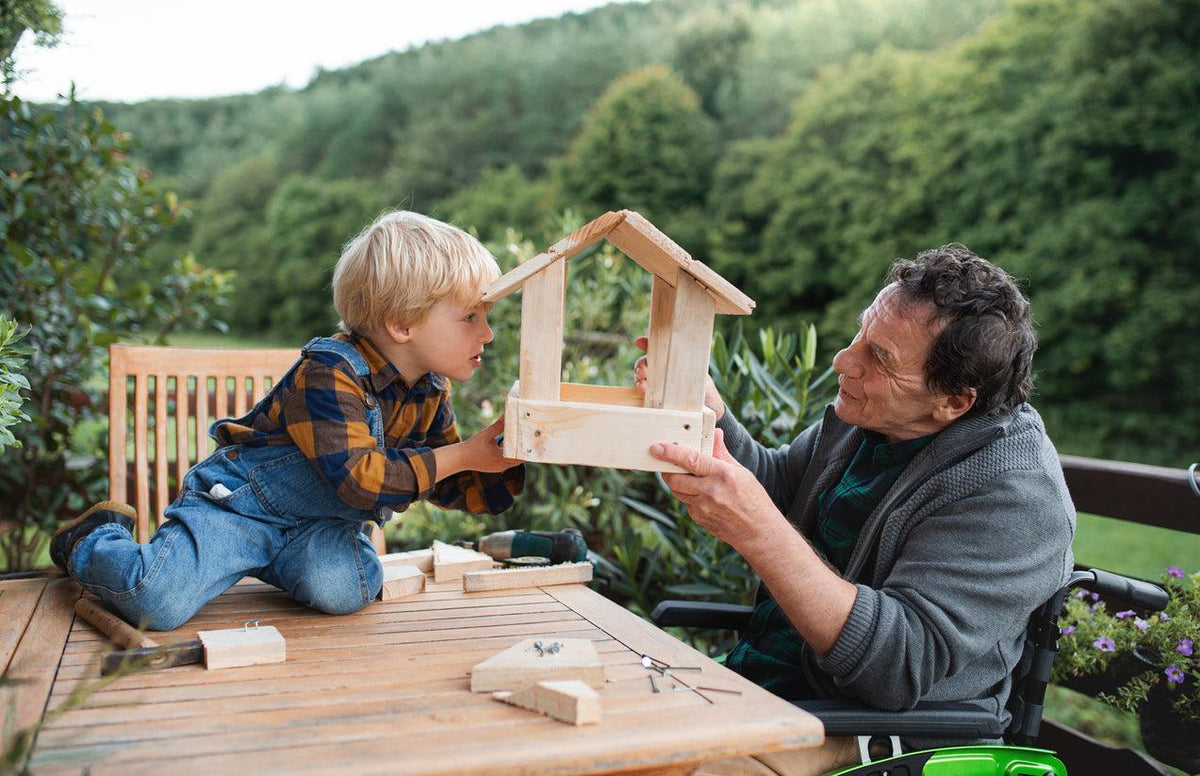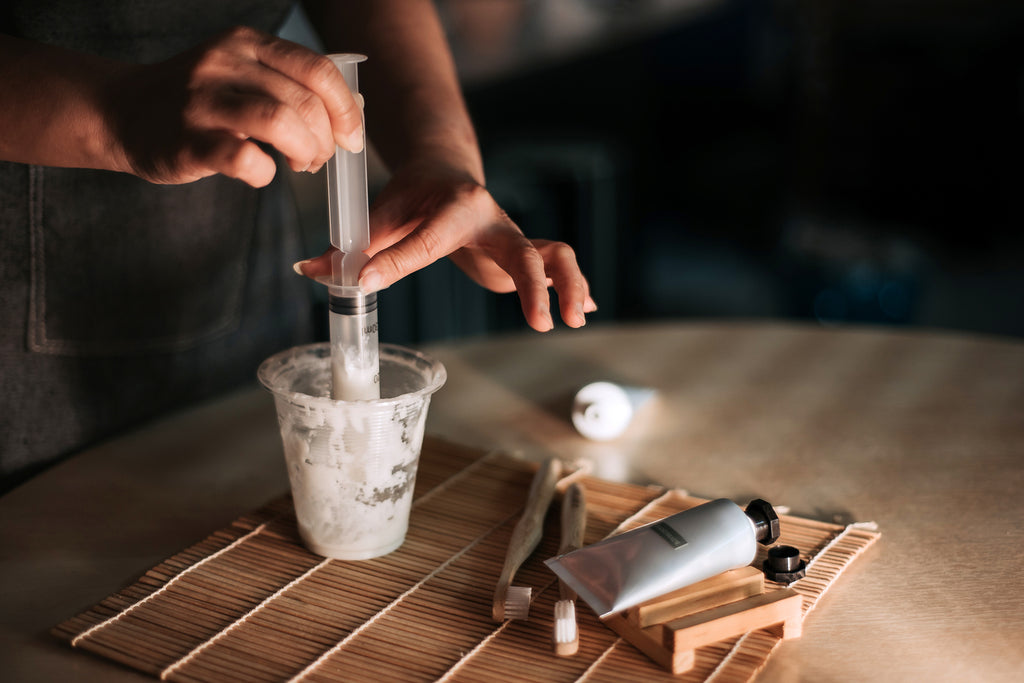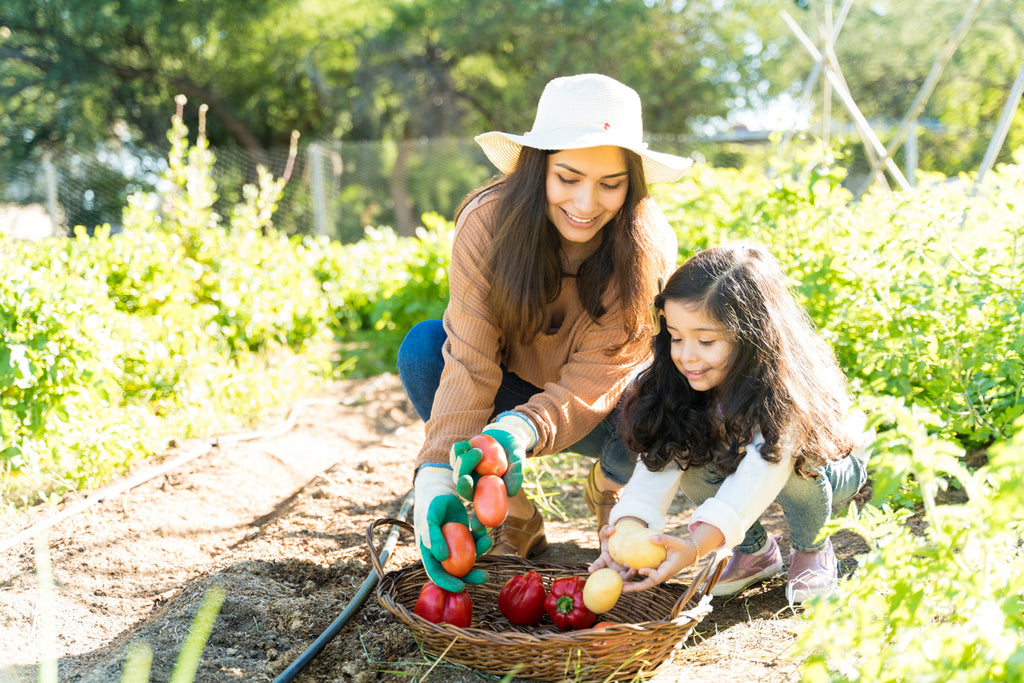A feature wall can instantly make a living room feel more intentional, adding depth and character without a full renovation. The key is choosing the right surface (often the wall behind the sofa, fireplace, or TV), then matching colour, texture, and lighting to the way you actually use the space. Deep blues, greens, and charcoals create a cosy, evening-friendly mood, while warmer terracottas and ochres bring energy for social rooms. If paint feels too simple, wallpaper, slatted panelling, or subtle texture can deliver impact without overwhelming the rest of your décor. Keep sight lines in mind, avoid walls broken up by doors and windows, and test samples across morning, afternoon, and lamp light before committing. At Friendly Turtle EcoBlog, we love home updates that look great and last: thoughtful choices, quality finishes, and flexible styling that won’t date after one season.
Share your articles with us and get published! Reach out at hello@friendlyturtle.com.
5 DIY Activities for Environmental Education with Kids

Want to teach your kids about the importance of protecting our planet without them rolling their eyes? How about trying out these five DIY activities that'll make environmental education a breeze?
These activities are super fun, easy to follow, and will have your kids hooked in no time. So, grab your kiddos, grab some supplies, and let's get eco-curious!
Solar Panel Exploration
Harnessing the power of the sun is an excellent way to introduce kids to renewable energy. Begin by explaining the concept of solar energy and its benefits for the environment.
One surefire way to educate your kids about solar power is to show how it works through solar panels and therefore makes your home more sustainable. Yet while solar panel cost in the UK continues to decrease, embarking on a DIY project to create a simple solar-powered device is a more affordable solution to kick-start environmental education.
One exciting project is constructing a solar oven using cardboard, aluminium foil, and a few other materials. This hands-on experience not only teaches kids about sustainable energy but also demonstrates the practical applications of solar power.
Materials:
Instructions:
- Line the inside of the cardboard box with aluminium foil, ensuring it reflects sunlight.
- Cut a flap in the box and cover it with plastic wrap to create an oven window.
- Cover the bottom of the box with black construction paper to absorb heat.
- Place the thermometer inside the box.
Set the solar oven in direct sunlight and watch as it heats up. Use it to cook simple snacks like s'mores or melt cheese on nachos.

Eco-Friendly Toothpaste
Promote sustainable oral care habits by creating your own eco-friendly toothpaste with kids. Discuss the environmental impact of traditional toothpaste tubes and the benefits of using natural ingredients.
This activity encourages creativity while emphasizing the importance of choosing sustainable alternatives.
Materials:
- Baking soda
- Coconut oil
- Peppermint essential oil
- Glass jar with lid
Instructions:
- Mix 4 tablespoons of baking soda with 2 tablespoons of coconut oil in a bowl.
- Add a few drops of peppermint essential oil for flavour.
- Stir the ingredients until you achieve a smooth paste.
- Transfer the toothpaste into a glass jar with a lid for storage.
- Discuss the environmental benefits of using homemade toothpaste and how it reduces plastic waste.
Seed Bombs for Guerilla Gardening
Teach kids about the significance of biodiversity and the importance of green spaces by creating seed bombs for guerilla gardening.
This DIY activity is not only educational but also encourages children to actively contribute to environmental conservation.
Materials:
- Clay
- Compost
- Seeds (wildflowers or native plants)
- Water
Instructions:
- Mix equal parts clay and compost in a bowl.
- Add a small amount of water to create a moldable mixture.
- Form small balls with the mixture, embedding seeds within each ball.
- Allow the seed bombs to dry completely.
- Take the seed bombs to a local park or unused area, and toss them onto bare soil. Watch as they grow into vibrant plants, promoting biodiversity in unexpected places.
Upcycled Bird Feeders
Teach kids about the importance of wildlife conservation with a fun and creative DIY project – upcycled bird feeders. Discuss the significance of birds in maintaining ecological balance while repurposing household items to create personalized feeders.
Materials:
- Empty plastic bottles
- Wooden spoons
- Acrylic paint
- String or twine
- Birdseed
Instructions:
- Cut a hole in the plastic bottle large enough for a wooden spoon handle to fit through.
- Paint the bottle with vibrant colours to attract birds.
- Insert a wooden spoon through the hole, creating a perch for the birds.
- Tie a piece of string or twine around the neck of the bottle for hanging.
- Fill the bottle with birdseed and hang it in a suitable outdoor location.
This activity not only provides a valuable lesson on the importance of wildlife but also encourages kids to repurpose materials, promoting the principles of reduce, reuse, and recycle.

Sustainable Cooking Challenge
Engage kids in a sustainable cooking challenge that not only introduces them to basic culinary skills but also emphasizes the importance of choosing locally sourced and environmentally friendly ingredients.
Discuss the carbon footprint associated with food transportation and the benefits of supporting local farmers.
Materials:
- Locally sourced fruits, vegetables, and other ingredients
- Simple recipes for snacks or meals
- Cooking utensils
Instructions:
- Choose recipes that utilize locally sourced and seasonal ingredients.
- Discuss the environmental impact of supporting local farmers and reducing food miles.
- Involve kids in the preparation and cooking process.
- Enjoy the delicious results together while reinforcing the importance of making eco-conscious food choices.
Now, if thought, "My kids are too busy watching YouTube to care about the environment." – no more excuses!
These DIY activities are so much fun that your kids won't even realize they're learning about sustainability. Plus, they're a great way to bond with your kids and create lasting memories.
Through activities involving solar panels, toothpaste, cooking, and more, we can cultivate a generation that values and contributes to a healthier, more sustainable planet.
0 comments
Let customers speak for us
Blog posts
Good oral health starts long before the first wobbly tooth. When children learn simple routines early, they’re far more likely to avoid cavities, gum irritation and the stress of emergency appointments later on. Begin with regular dental check-ups so small issues are spotted quickly and visits feel normal, not scary. At home, let your child choose a toothbrush they actually like, then guide them through gentle circular brushing for two minutes, twice a day. Add flossing as soon as teeth touch, and keep it upbeat with a short story or a timer song. For a more planet-friendly routine, pick durable brushes (or responsibly sourced bamboo), turn off the tap while brushing, and choose refillable or recyclable packaging where possible. Friendly Turtle EcoBlog shares practical, low-waste lifestyle ideas like these, helping families build habits that protect little smiles while treading lighter on the Earth.
Preventive care is one of the kindest, most sustainable choices you can make for your pet. Many health problems start quietly: a little plaque, a mild itch from parasites, a gradual dip in energy, or stiffness that only shows up after rest. Left alone, these “small” issues can build into painful dental disease, weight-related strain on joints, or conditions that affect the heart, lungs, liver, or kidneys. In this Friendly Turtle EcoBlog guide, we share practical habits that protect pets over time, from parasite control and lifestyle-led vaccinations to age-appropriate nutrition, daily movement, and simple grooming checks that spot changes early. Consistent routines also matter more than most owners realise, helping you notice subtle shifts before they become expensive emergencies. The goal is not perfection, but steady, evidence-led care that keeps your companion comfortable, active, and thriving for longer.



